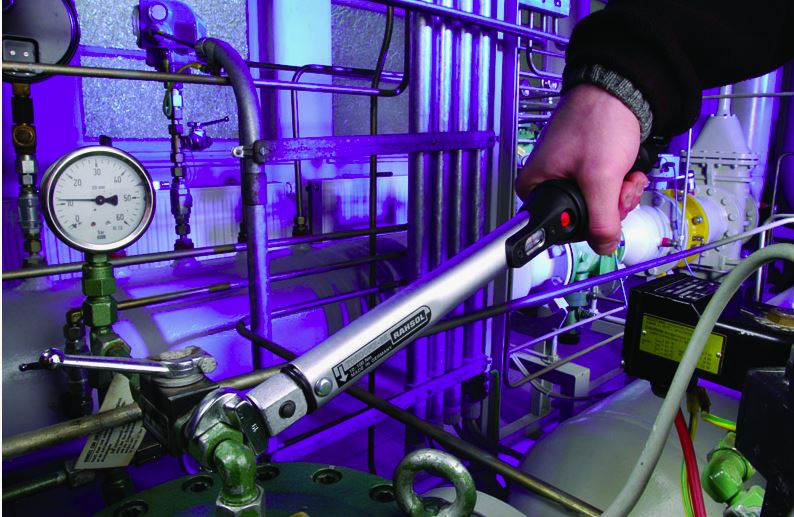Hydraulic Oil: What It Is, How It Works, and Why It Matters
A Comprehensive Guide To Hydraulic Oil What It Is And Why It s Essential
Hydraulic oil is a crucial component in many industrial and automotive applications. Its primary role is to transmit power, lubricate machinery, and control the movement of hydraulic systems. Understanding what hydraulic oil is, how it works, and why it is important can help ensure the efficiency and longevity of hydraulic equipment. Here we will delve into the specifics of hydraulic oil, including its various types, grades, and key suppliers, with a focus on the UAE market.
What is Hydraulic Oil?
Hydraulic oil, also known as hydraulic fluid, is a type of hydraulic oil uses in hydraulic systems to transfer power from one component to another. The fluid operates under high pressure and plays a critical role in various machinery, including construction equipment, industrial machines, and automotive systems. Hydraulic oil is essential for the smooth operation of hydraulic systems, providing both power transmission and lubrication.
What Does Hydraulic Fluid Do

Hydraulic systems use hydraulic oil to transmit force and control the movement of machinery like truck hydraulic fluids. The basic principle involves the use of a pump to generate pressure within the hydraulic fluid. This pressurized fluid is then directed through hoses and pipes to various components such as cylinders, motors, and valves. The hydraulic oil’s ability to transmit force efficiently and without significant loss is crucial for the system’s performance.
What does hydraulic oil do? When the hydraulic fluid is pumped through the system, it creates pressure that moves the hydraulic actuators, such as cylinders and motors. This movement results in the desired mechanical work, such as lifting, pushing, or rotating. The hydraulic oil must maintain its properties under high pressure and temperature to ensure reliable performance.
Different Types of Hydraulic Oil
Hydraulic oils comes in various types like hydraulic oil in engine, each suited for different applications and operating conditions. Understanding these types can help in selecting the right hydraulic fluid for specific needs. Here are the main categories:
Mineral Oils: These are the most common type of hydraulic fluids, derived from refining crude oil. Mineral oils are used in many hydraulic systems due to their availability and cost-effectiveness. They come in various grades, including:
- Hydraulic Oil ISO 32: Suitable for moderate temperature ranges.
- Hydraulic Oil ISO 46: Ideal for warmer environments.
- Hydraulic Oil ISO 68: Used in high-temperature applications.
Water-Containing Fluids: These fluids are composed of water and an additive to prevent rust and corrosion. They are less flammable compared to mineral oils but may not be suitable for all applications due to their limited lubricating properties.
- Water Glycol Solutions: These contain a mix of water and glycol, offering good fire resistance.
- Water Oil Emulsions: A blend of water and oil, providing a balance between fire resistance and lubrication.
Fire-Resistant Fluids: Designed for applications where fire resistance is critical, these fluids are used in industries like steel manufacturing and aviation.
- Phosphate Esters: Known for excellent fire resistance properties.
- Fire-Resistant Fluids: These fluids have high flash points and are used in high-risk environments.
Biodegradable Fluids: With increasing environmental concerns, biodegradable hydraulic fluids are becoming more popular. They break down naturally in the environment, reducing pollution.
- Esters: Derived from natural sources, such as vegetable oils.
- Synthetic Fluids: Made from chemical compounds, designed to offer specific performance characteristics.
What Is Hydraulic Fluid Made Of?
Hydraulic oil grades are categorized based on their viscosity, which affects the oil’s flow and performance. The viscosity of hydraulic oil is measured using the ISO (International Organization for Standardization) scale. Different grades of hydraulic oil are suitable for various operating conditions:
ISO 32: This grade is commonly used in systems that operate within a moderate temperature range. It offers a balance between performance and cost.
ISO 46: Ideal for warmer environments, ISO 46 hydraulic oil provides better lubrication and protection at higher temperatures.
ISO 68: Suitable for high-temperature applications, this grade ensures that the hydraulic fluid remains stable and effective under extreme conditions.
ISO 100 and Above: These higher grades are used in specialized applications requiring very high viscosities, such as certain heavy-duty machinery and high-pressure systems.
Choosing the correct grade of hydraulic oil is essential to ensure optimal performance and avoid potential issues such as overheating, excessive wear, and system inefficiency.
Importance of Hydraulic Oil
Function of hydraulic oil is vital for several reasons:
Power Transmission: Hydraulic systems rely on the efficient transmission of force from the pump to the actuators. Hydraulic oil facilitates this process by providing a medium through which power can be transferred.
Lubrication: Hydraulic oil lubricates moving parts within the system, reducing friction and wear. Proper lubrication extends the life of components and ensures smooth operation.
Cooling: The hydraulic oil absorbs and dissipates heat generated during operation, preventing overheating and maintaining optimal performance.
Corrosion Protection: Hydraulic fluids often contain additives that protect against rust and corrosion, extending the lifespan of components and reducing maintenance requirements.
Sealing: Hydraulic oil helps in sealing gaps and preventing leaks within the system, ensuring efficient operation and reducing the risk of contamination.
Hydraulic Oil Types And What is Hydraulic Oil Used For

Use of hydraulic and lubrication in a wide range of applications across various industries like hydraulic oil for construction vehicles due to its versatility and essential role in hydraulic systems. Its ability to transmit power, provide lubrication, and ensure system efficiency makes it crucial for numerous mechanical and industrial processes for hydraulic system lubrication. Here’s a closer look at some of the key applications of hydraulic oil:
1. Construction Equipment
Hydraulic oil is extensively used in construction machinery such as excavators, bulldozers, and cranes. In these heavy-duty machines, hydraulic systems control the movement of arms, booms, and buckets. The hydraulic oil transmits the force generated by the hydraulic pump to these components, enabling precise and powerful operations. For example, in excavators, hydraulic oil is crucial for the smooth and efficient functioning of the boom, stick, and bucket movements.
2. Automotive Systems
In the automotive industry, hydraulic oil is used in various systems including power steering, braking systems, and automatic transmissions. Hydraulic fluid in power steering systems helps drivers maneuver their vehicles with ease by providing the necessary force to assist steering. In braking systems, hydraulic oil transmits the force from the brake pedal to the brake components, ensuring effective stopping power. Automatic transmissions rely on hydraulic oil to manage gear shifts and transmission performance.
3. Industrial Machinery
Many industrial machines and manufacturing equipment rely on hydraulic systems for operation. Hydraulic presses, injection molding machines, and CNC machines use hydraulic oil to power their operations. For instance, hydraulic presses use high-pressure fluid to apply force for shaping materials, while injection molding machines rely on hydraulic systems to inject molten material into molds with precision.
4. Aerospace
In the aerospace industry, hydraulic oil is used in various aircraft systems including landing gear, flight controls, and brakes. The hydraulic systems in aircraft operate under extreme conditions and require hydraulic fluids that can withstand high pressures and temperature variations. For example, hydraulic oil is used to extend and retract landing gear and to control the movement of aircraft flaps and ailerons.
5. Marine Applications
Hydraulic systems are also prevalent in marine applications, where hydraulic oil is used in equipment such as steering systems, winches, and anchor systems. Marine vessels rely on hydraulic systems for efficient and reliable operation of various onboard equipment. For instance, hydraulic oil powers the steering mechanisms of ships and helps in the smooth operation of anchor winches.
6. Agricultural Equipment
Agricultural machinery such as tractors, harvesters, and plows use hydraulic systems for various functions. Hydraulic oil helps in operating attachments, lifting heavy loads, and controlling implements with precision. For example, hydraulic systems in tractors enable the lifting and lowering of plowshares or other attachments, enhancing productivity and efficiency in farming operations.
7. Mining Equipment
In the mining industry, hydraulic oil is used in equipment like drills, loaders, and haul trucks. Hydraulic systems in mining machinery are crucial for performing heavy-duty tasks such as drilling, excavation, and material handling. The use of high-quality hydraulic oil ensures the reliable performance of these machines under harsh and demanding conditions.
8. Energy Sector
Hydraulic systems are used in various energy sector applications, including oil and gas drilling rigs, wind turbines, and hydraulic pumps in power generation. For example, hydraulic oil is essential for operating the control systems of drilling rigs and for managing the pitch of wind turbine blades to optimize energy capture.
Hydraulic Oil Suppliers in UAE
For businesses operating in the UAE, selecting a reliable supplier for hydraulic oil is crucial. The UAE has a number of suppliers that offer high-quality hydraulic fluids and related products. Some notable suppliers include:
Final Thoughts
Hydraulic oil is a fundamental component in many industrial and automotive applications, playing a critical role in power transmission, lubrication, cooling, corrosion protection, and sealing. Understanding the different types of hydraulic oil, their grades, and the importance of choosing the right fluid can help ensure the efficient operation and longevity of hydraulic systems.
For businesses in the UAE, finding reliable hydraulic oil suppliers is crucial for maintaining the performance of hydraulic equipment. With a range of suppliers offering various hydraulic fluids, it’s important to select products that meet the specific needs of your machinery and operating conditions.
By staying informed about hydraulic oil types, grades, and suppliers, you can make informed decisions that contribute to the efficiency, reliability, and overall performance of your hydraulic systems.
FAQs
Hydraulic oil, also known as hydraulic fluid, is a type of fluid used in hydraulic systems to transfer power from one component to another. The fluid operates under high pressure and plays a critical role in various machinery, including construction equipment, industrial machines, and automotive systems. Hydraulic oil is essential for the smooth operation of hydraulic systems, providing both power transmission and lubrication.
The replacement frequency of hydraulic oil depends on factors such as the type of hydraulic system, operating conditions, and manufacturer recommendations. Regular maintenance checks and oil analysis can help determine when the oil needs to be replaced. Typically, hydraulic oil should be replaced every 1,000 to 2,000 operating hours or as indicated by system performance and condition.
Signs that hydraulic oil may need to be changed include:
Decreased Performance: Reduced efficiency or sluggish operation of hydraulic systems.
Contamination: Presence of particles, water, or discoloration in the oil.
Increased Temperature: Overheating of the hydraulic system.
Strange Odors or Sounds: Unusual smells or noises from the machinery.
Yes, hydraulic oil can be recycled or disposed of properly. Many regions have regulations and facilities for recycling used hydraulic oil. It’s essential to follow local environmental guidelines for disposal and recycling to prevent pollution and ensure responsible handling of the oil.
Hydraulic oil absorbs and dissipates heat generated during the operation of hydraulic systems. By transferring heat away from critical components, hydraulic oil helps maintain optimal operating temperatures, preventing overheating and ensuring efficient system performance.
Choosing the right hydraulic oil depends on factors such as operating temperature, system pressure, and the specific requirements of your machinery. Consider the viscosity grade, type of hydraulic oil, and any special properties like fire resistance or biodegradability based on your equipment’s operating conditions and industry standards.

Radiator Stop Leak UAE: Quick Fix for Vehicle Cooling System Leaks
Radiator Stop Leak UAE: Quick Fix for Vehicle Cooling System Leaks Discover More Introduction: The Unforgiving UAE Climate and Your Vehicle’s Lifeline The United Arab Emirates’ automotive landscape is defined by extremes. Ambient temperatures that regularly surpass 45°C (113°F), coupled with intense urban congestion and long, high-speed desert drives, create a perfect storm of thermal stress for every vehicle. In this environment, your engine cooling system is not merely a subsystem; it is the single most critical component preventing catastrophic engine failure.

What Type of Transmission Oil in UAE Does My Car Need? Your Complete Guide
What Type of Transmission Oil in UAE Does My Car Need? Your Complete Guide Discover More Navigating the vast, sun-baked highways of the United Arab Emirates—from the dynamic urban sprawls of Dubai and Abu Dhabi to the majestic desert dunes and the tranquil mountain passes of the Hajar range—places extraordinary mechanical and thermal stress on every component of your vehicle. While conscientious drivers often prioritize engine oil changes, the vital lifeblood safeguarding the transmission, the complex heart of your car’s

Guide to UAE Turbine Oil Selection Application & Management for Industrial Facilities
Guide to UAE Turbine Oil Selection, Application, and Management for Industrial Facilities Discover More In the hyper-competitive industrial landscape of the United Arab Emirates, where operational excellence directly translates to economic advantage, turbine lubrication represents a critical nexus of reliability engineering and strategic asset management. This comprehensive guide, developed with technical insights from Rumanza Lubricants, provides an unprecedented deep dive into the science, selection criteria, and life-cycle management of turbine oils specifically engineered for the extreme operating conditions of the

Synthetic vs. Mineral Hydraulic Oil in UAE : Which is Best for Your Operation?
Synthetic vs. Mineral Hydraulic Oil in UAE : Which is Best for Your Operation? Discover More Across the dynamic landscape of the United Arab Emirates—from the megaprojects of Dubai Marina to the intricate conveyor systems of Jebel Ali Port, from the massive hydraulic shovels in Al Dhafra quarries to the precision automated lines in Abu Dhabi’s industrial cities—the silent, powerful force of hydraulics is indispensable. These systems convert fluid power into monumental force and precise motion. At the core of

What is a Pour Point Depressant? | Benefits, Uses & How It Works Mechanism
What is a Pour Point Depressant? | Benefits, Uses & How It Works Mechanism Discover More In the intricate world of lubricant formulation, few additives play as critical yet understated a role in cold-weather operability as Pour Point Depressants (PPDs). These specialized chemical compounds are the linchpin that prevents machinery from seizing up when temperatures plummet. This in-depth guide goes beyond the basics, exploring the sophisticated chemistry, detailed mechanism, nuanced benefits, and practical considerations of PPDs. We will also examine the

Guide to Gasoline Engine Oils for UAE’s Extreme Climate: Engineering Peak Performance
Gasoline Engine Oils for UAE’s Extreme Climate: Engineering Peak Performance Discover More In the heart of the Arabian Peninsula, the United Arab Emirates stands as a testament to human ambition, with its engineering marvels and endless highways. Yet, this environment of soaring achievement is also one of the most punishing on Earth for machinery. For your vehicle—whether a nimble city sedan, a powerful family SUV, or a high-performance sports car—the UAE’s climate is a relentless adversary. The choice of engine

What are Polyol Ester Oils & Lubricants – Properties & Applications
What are Polyol Ester Oils & Lubricants – Properties & Applications Discover More In the intricate world of industrial machinery, automotive engines, and advanced refrigeration systems, the choice of lubricant is not merely a maintenance task—it’s a critical engineering decision. While conventional mineral oils have served us for over a century, the demands of modern technology require fluids that can perform under extreme pressure, temperature, and environmental stress. This is where synthetic lubricants, specifically Polyol Ester oils, come to the forefront.

Guide to Choosing the Right Lithium Complex Grease in UAE
Guide to Choosing the Right Lithium Complex Grease in UAE for Unbeatable Performance Discover More In the heart of a region defined by its ambition and extreme climate, the machinery that builds and powers the UAE operates under immense pressure. From the towering cranes sculpting Dubai’s skyline to the massive haul trucks in Abu Dhabi’s industrial zones and the relentless conveyor systems in Jebel Ali Port, every moving part is a critical link in the chain of progress. Protecting these

Lithium Grease UAE – Buy Multi-Purpose Lubricant Grease
Lithium Grease UAE – Buy Multi-Purpose Lubricant Grease Discover More In the relentless engine of the United Arab Emirates’ economy—where monumental construction, non-stop logistics, and a climate of extreme heat and abrasive sand are the norm—the battle against friction and corrosion is perpetual. The integrity of a construction crane’s slewing ring, the smooth operation of a delivery fleet’s wheel bearings, and the silent efficiency of a hotel’s HVAC system all hinge on a single, critical decision: the choice of lubricant.